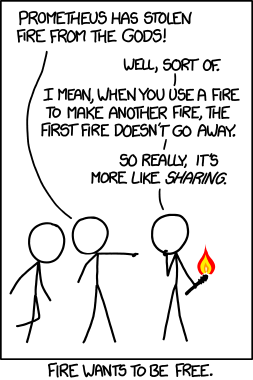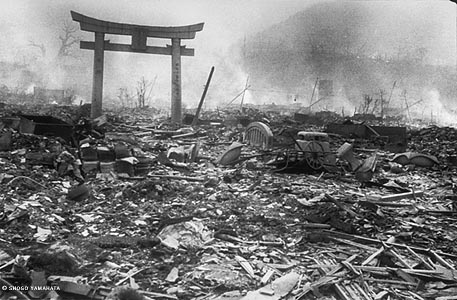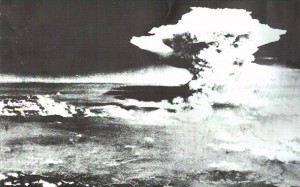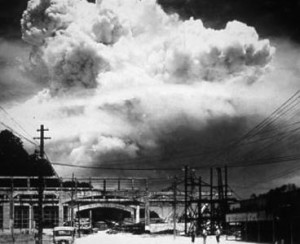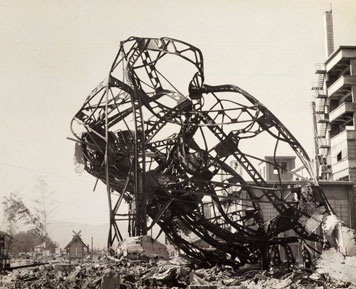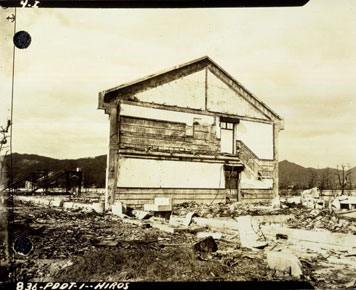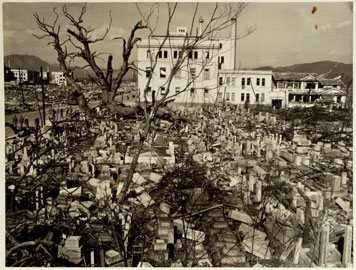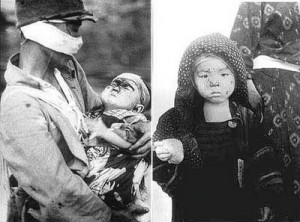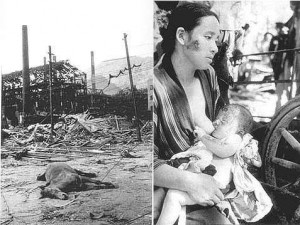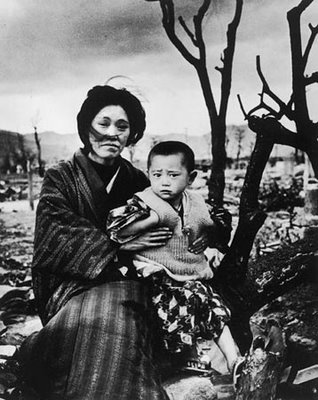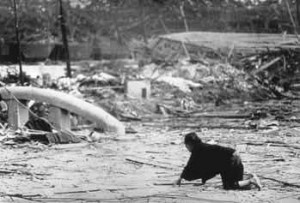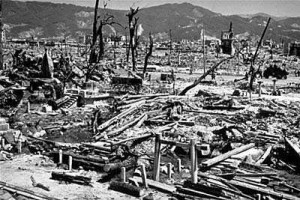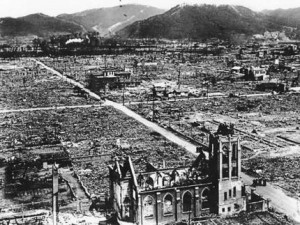This is actually a re-post, from quite some time ago, from a long, sometimes productive, sometimes tiresome comment thread at Alas, A Blog back around 2006. A conversation about political libertarianism became — as I hope they always will — a conversation about anarchism, and a commenter named Charles (no relation) came around to asking:
I was once an anarchist, but I'm finding myself in complete agreement with nobody.really. Anarchist principles are good cautionary principles to use as limitations on statist power, and they are good guidelines for running small to middling groups, but there are too many questions concerning the structuring of larger groups that they can't meaningfully answer, or that they answer incorrectly.
Nobody.really pointed out that there are always people who behave badly in the absence of government force, some of whom form the worst sort of tyrannical mini-governments. This doesn't require any sort of innate predisposition to do so or anything along those lines, it merely requires a recognition that no community is ever successfully at completely inculcating all of its members with its beliefs and principles. People are capable of coming up with a very wide variety of ways of acting, and behaving horribly and seizing other people's stuff can be an effective method of surviving. People who come up with it are able to make a mess of the lives of everyone around them, and are often enough able to push the culture over into one in which their behavior is acceptable. So, what do you do to stop that?
. . . Creating a permanent structure for how to handle violence, who gets to handle the violence, etc, produces a more stable situation, where when my neighbor decides to take my stuff, I know who to turn to, and I know with reasonable certainty that the powers that be will side with the one who has the legitimate right to the stuff.
Obviously, the powers that be often end up being tyrants, but the question of how to prevent them from becoming tyrants (or how to stop them from being tyrants once they become them) is not really answered by saying let their never be powers that be in the first place.
How, under anarchist principles, do you prevent the rise of tyrants?
–Charles, in comments on Libertarian Follies
Alas, A Blog (March 22, 2006).
To which I replied . . .
Shoot them. Jesus.
If your objection to anarchism is that it does not provide magic wands for resisting evil, then anarchism stands guilty as charged. But so does statism: magic wands like that don't exist, and given the abattoir that was the 20th century, I hardly think that the State has a very good historical record of providing people with the means to stop relentless tyrants.
* * *
. . . As a further note on my brusque earlier reply.
Many of the common lines of criticism against anarchist theories succeed only by holding anarchy and anarchists to higher standards than the State or statists are held to. The line of how anarchists intend to stop tyrants (petty or grand) is one of them. Nobody in the world, anarchist or statist, has a perfect theory of how to resist oppression; democratic states, republican states, aristocratic states, constitutional monarchies, absolute monarchies, grand empires, humble city-states, stateless societies (medieval Iceland, medieval Ireland),[] etc. have all, at some time or another, fallen into tyranny or into civil war; have been conquered in war; have systematized and ritualized forms of violent oppression by one class or caste or sex over another. Revolutions fail; societies decay; things fall apart. Judging from the results of the late unlamented century, most of the powers that be don't even have a good theory of how to stop that: hundreds of millions of people were murdered because major powers engaged in tyranny and imperial warfare, civil war, terror famines, and genocide, and because even when they were not actively doing these things themselves, they were either powerless or unwilling to do anything to stop the others. So while these are reasonable questions to ask of any theory of social life, a bit of recognition that the topic is hard and that it's unfair to hold any theory to the standard of needing a complete solution to the problem of evil, would go a long way.
That said, here are some things that anarchists typically stress.
(1) For just about any form of successful oppression, it's hard to see how introducing the State will dampen the problem rather than amplifying it. If there is a discernible ruling class then it's a matter of course that they'll have disproportionate power over the apparatus of the State; if you have a centralized Leviathan that is able to assert and enforce its claims to sole authority then that means a corresponding increase in the capacity of oppressors to violently enforce their will over the oppressed. Without a central state, there is no guarantee that the oppressed will be able to successfully resist the aggression of oppressors, but when a central state with unchallenged police power, military power, intelligence capabilities, etc. is systematically turned against them, the prospects are correspondingly much bleaker. You might say, "But look, what that means is that the oppressed should have access to state power so that they can defend themselves. Wouldn't that be great?" But then you need to (1) figure out how they are going to get it (magic won't do) and (2) how whatever means help them to get it (organizing, moral agitation, cultural change, nonviolent resistance, etc.) wouldn't work just as well, or better, if it were focused on direct action rather than on trying to influence or take control of government decision-making bodies.
(2) As a strategy for resisting potential new forms of oppression, a Leviathan state also seems like a risky strategy at the very best. Tyrants very often solidify their tyranny by taking over centralized structures of power that were already in place; it's much harder to build an effective tyranny from scratch than it is to consolidate power over existing police, intelligence, military, etc. forces and then to turn them to your ends. In anarchy, any projects or organizations for self-defense are voluntary, decentralized, and don't claim a monopoly on legitimate authority; that means that if a tyrant tries to subvert the existing structures there aren't institutional barriers to withdrawing from them and setting up new ones that aren't subject to her or his will. Under territorial states, no such option is available: there's only one target that needs to be seized, and once it's seized, the subjects of the state can't do much of anything about it. The "stability" of an organized power structure is only a virtue if that power structure is, on the whole, benevolent; if it's malevolent then the last thing you want is for its hegemony to be stable and unchallenged. The problem is how to protect yourself from the malefactors once you've already ceded your ability to resist back when times were allegedly good. Actually existing states don't have a very good record on this count.
(3) To be quite frank, nearly no State in all of recorded history (certainly not the United States, for one) could seriously be claimed to be a bunch of ordinary people banding together to protect themselves from marauders. The band of slavers and genocidaires who founded the U.S. government, to take one example, were pretty explicit that they aimed for the federal government to protect and systematize their own marauding against innocent Africans, African-Americans, and Indians not taxed. It's not much different elsewhere — the people who oversee the formation of states are typically powerful and concentrated interests who hope to, and do, turn the newly-formed State to the pursuit of their own interests at the expense of the less powerful. The popular liberal myth of government by compact wouldn't morally justify the State, even if it were true of actually existing governments; but it's not true. The only "compacts" made have been pirate's codes, and nothing more.
(4) The strategic question of how to create, sustain, and defend anarchy is an important one to ask, and a difficult one to answer. But it ought to be understood that it is not, actually, the primary issue involved in whether or not anarchism is true. The primary arguments for anarchism are not strategic arguments, but moral ones; it's not that anarchy is valued because it's useful to attaining some other goods, but rather because violent coercion is wrong, whatever its effects may be, and the princes, potentates, and presidents of the world make claims of authority over other people that can only be, and are, backed up by violent coercion. So demonstrating that there are tricky problems for anarchists to solve doesn't mean that anarchy isn't the right thing to aim for; it just means that what you ought to aim for might be tricky to hit. But nobody said that the right thing has to be easy, or that achieving it has to be effortless. The emancipation of women, civil rights, the abolition of slavery, religious toleration, democracy, etc. have all been difficult propositions, tricky to achieve and difficult to sustain in the face of coordinated and unrelenting resistance. That raises questions about strategy and tactics, but it doesn't provide any reason for thinking that the goal itself ought to be abandoned.
Also.
